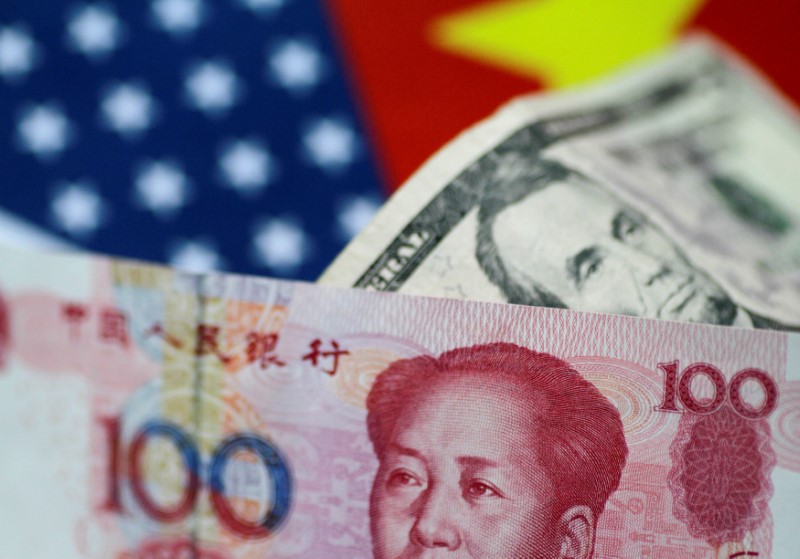This post was originally published on this site
https://i-invdn-com.investing.com/news/LYNXMPEE650J2_M.jpg
Sentiment towards Asian markets was also rattled by a devastating earthquake in central Japan, which destroyed scores of houses and disrupted train lines in the region. While Japanese markets were closed for a week-long holiday, the yen sank 0.5% in slim trading volumes.
The Chinese yuan was among the worst performers for the day, falling 0.4% as official purchasing managers index data showed further deterioration in manufacturing activity.
While a private survey showed some strength in the sector, growth still remained largely modest, while employment and inflation failed to pick up substantially. The readings indicated little signs of recovery in Chinese economic activity at the end of 2023.
The PBOC set a slightly stronger daily fix for the yuan, following the dismal data. But the moved only slightly stemmed losses in the currency.
The yuan was among the worst-performing Asian units in 2023, down over 3% as a post-COVID Chinese economic recovery largely failed to materialize.
Weakness in China also dented sentiment towards broader Asian markets, given the country’s status as a major trading hub for the region.
Broader Asian currencies were in a flat-to-low range, with focus largely on early interest rate cuts by the Federal Reserve in 2024. While bets on such a scenario had triggered some gains in Asian markets through late-2023, most currencies ended the year largely unchanged.
The Australian dollar added less than 0.1% on Tuesday, while the South Korean won slid 0.7% following weak manufacturing PMI and trade data.
Sentiment towards South Korean markets was also rattled by the stabbing of opposition Democratic Party leader Lee Jae-myung during a media briefing. But later reports showed that Lee was in stable condition.
The Singapore dollar fell 0.2% even as data showed the island state’s economy grew more than expected in the fourth quarter of 2024. But overall growth remained muted, with weakness in China likely to provide persistent headwinds.
The dollar index and dollar index futures rose about 0.2% each in Asian trade on Tuesday, recovering slightly from a five-month low after the greenback slid some 2% in 2023.
The dollar was battered chiefly by bets that the Fed will begin trimming interest rates earlier in 2024. CME’s Fedwatch tool shows traders pricing in an over 70% chance for a 25 basis point rate cut in March 2024.
But until the March meeting, markets still have a barrage of key economic readings to contend with. Nonfarm payrolls data for December is due this Friday, and is widely expected to factor into monetary policy.
While the labor market appeared to be cooling in recent months, it was still running relatively hotter than what the Fed was comfortable with. Inflation also remained well above the central bank’s 2% annual target, despite cooling sharply through 2023.
Fed officials warned in December that the bank was seeking more signs of cooling inflation and employment, and that bets on early interest rate cuts were overly optimistic.

